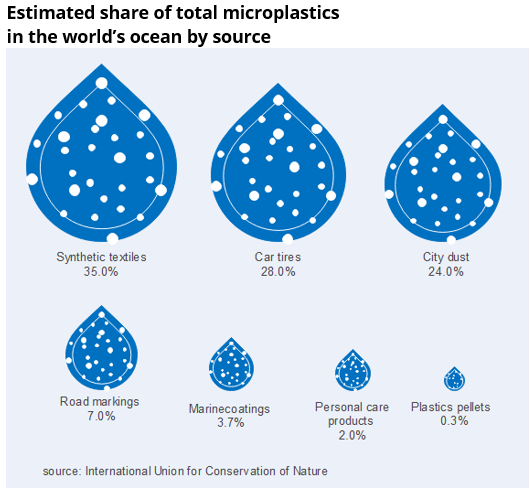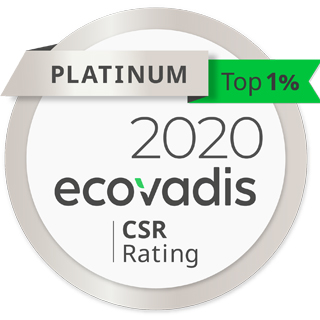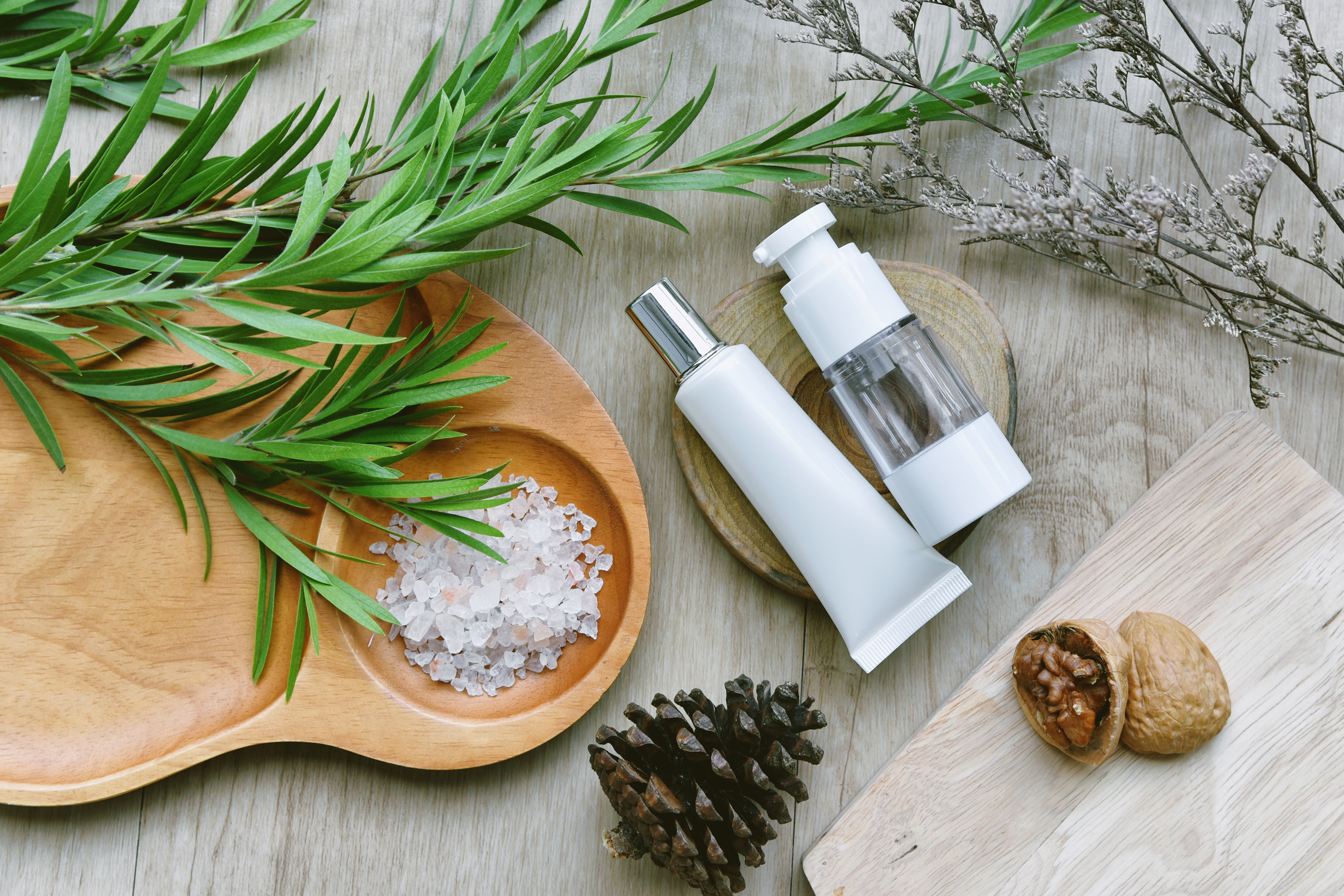With the beauty standards moving towards naturalness, PolymerExpert is committed to helping cosmetic industries and consumers prepare for the upcoming reality. From responsibly sourced natural ingredients to carefully designed molecules and process, we promote the ecodesign of ingredients as the way to reach respectful and circular beauty.
The actual climate and ecological crisis faced by the world is alarming. Different efforts are being made by governments, organizations, and individuals to protect the planet, but more still needs to be done. Sustainable practices were once seen as unnecessary or a long-term concern by a large number of industries. But, leaded by the beauty sector, the ecological transition is becoming a reality. Counting for up to 1.5% of the total global emissions of greenhouse gas in the planet, the beauty industry starts to prioritize the future of the planet and the sector is in a privileged position to lead a global change of habits. PolymerExpert, who is specialized in the development, characterization and production of polymers, is engaged to supporting cosmetic industries on this transition.
For nearly a decade, PolymerExpert has been dedicating its efforts to finding alternatives that are respectful to the planet – since EstoGel® M, an oil rheology modifier of more than 90% natural origin, to the recently launched and awarded EstoGel® Green, 100% biobased from castor and rapeseed oils. These efforts meet the demands of cosmetics consumers who are increasingly devoted to sustainability and urge brands to provide more environmentally friendly cosmetic products.
Among consumers’ main environmental concerns are excessive or unrecyclable plastic packaging and ocean pollution. Indeed, packaging can represent most of the beauty industry’s plastic pollution waste. But the issue is quite complex in the case of cosmetics, as plastics are also present in the formulations, playing a key role in shaping, preserving, stabilizing and giving long lasting or fixating properties to the products. Rather than discarded, these products are washed off during shower, for example, which makes the problem tricky to tackle. Once washed off, these ingredients reach river and ocean systems and can cause harm to the wild life. Most plastics, instead of decomposing, go through photodegradation which breaks them down into microscopic sized units. Such microplastics can be found in different aquatic species (among which over 100 are consumed by humans), causing from genetic mutations to changes in fish behavior.

Overcoming this problem is a challenge that must be treated with priority by cosmetic industries, and PolymerExpert is devoted to the development of viable alternatives to provide the world with microplastics-free cosmetic ingredients.
But disposal is just the final aspect in the life cycle of cosmetic products and ingredients. An analysis of the beginning of the cycle shows that the beauty industry is largely dependent on fossil fuel-based synthetic chemicals, which can impact significantly the carbon footprint of the product. Besides coming from finite resources, raw materials can be extracted by processes such as fracking for fossil fuels that can have deadly impacts on the natural environment. Toxic by-products and solvents can be released into the land and airways, and their dangerous nature rises risks of chemical leaks and fires that can damage the areas around the processing plants. While synthetic plastics are seen as environmental villains, their high performance during use has been justifying their maintenance in numerous cosmetics’ ingredients list.
Natural polymers such as cellulose, silk, collagen, and even the DNA are the way found by nature to achieve high performance, typical of polymers, without the downside of the synthetic counterparts. Following nature’s strategy, it is logical to believe that plastics can be part of the solution in tackling the environmental crisis. Many and varied natural ingredients can be used as alternatives to synthetic chemicals, but most bio-based polymers still present inferior performance to synthetic polymers. PolymerExpert, driven by its passion for innovation, has been able to combine natural origins with high-level performance on the development of its cosmetic ingredients. It is the case of EstoGel® Green technology, for example. Based on supramolecular chemistry, this fully biobased ingredient relies on the formation of inter-molecular interactions for a broad range of oils to produce transparent, reversible and shear-sensitive gels with high suspensive ability for natural and performant cosmetics, perfumery, sun and hair care products.
Indeed, the simple replacement of fossil fuel-based resources by renewable alternatives can solve their finite aspect, but the sustainability of the production and extraction are also key, as unsustainable methods lead to extensive destruction of natural habitats. Some examples include the industrial deforestation caused by palm oil extraction, or even in the mica mining industry. Often conducted through fire methods, deforestation is severely polluting because it releases tons of carbon into the environment and destroys the local wild life and biodiversity. In addition, such extraction industries can rely on some of the most vulnerable and lowest-paid people in the world. PolymerExpert’s ingredients possess international certifications that guarantee to costumers that the products comply with sustainability requirements. RSPO, for example assures that palm oil is grown and extracted sustainably, with no damage to forests, communities and wildlife. COSMOS certifies that ingredients and products are organic from natural resources, respectful of biodiversity, free of petrochemical ingredients and GMO, and that come from production and processing processes that are environmentally friendly and respectful of human health.

The circularity of cosmetic products also depends on the equally important steps in-between resourcing and discarding, that go from the production of ingredients to the use by consumers, and are treated as key concerns during the development of an ingredient at PolymerExpert. The minimization of solvents needed during synthesis, as well as of the energy required in the process (temperature and agitation, for example) and the use of by-product-free methods (medium 100% reactive), for example are crucial aspects to be taken into account. Finally, all human activities related to the factory and offices can be traced and optimized, from paper recycling to transportation choices and water and energy consumptions. In that aspect certifications such as Ecovadis are effective ways to trace and rate the environmental, social, and ethical performance of a company. Thanks to its sustainability management system, PolymerExpert has been awarded an Ecovadis Platinum medal (top 1% company).



